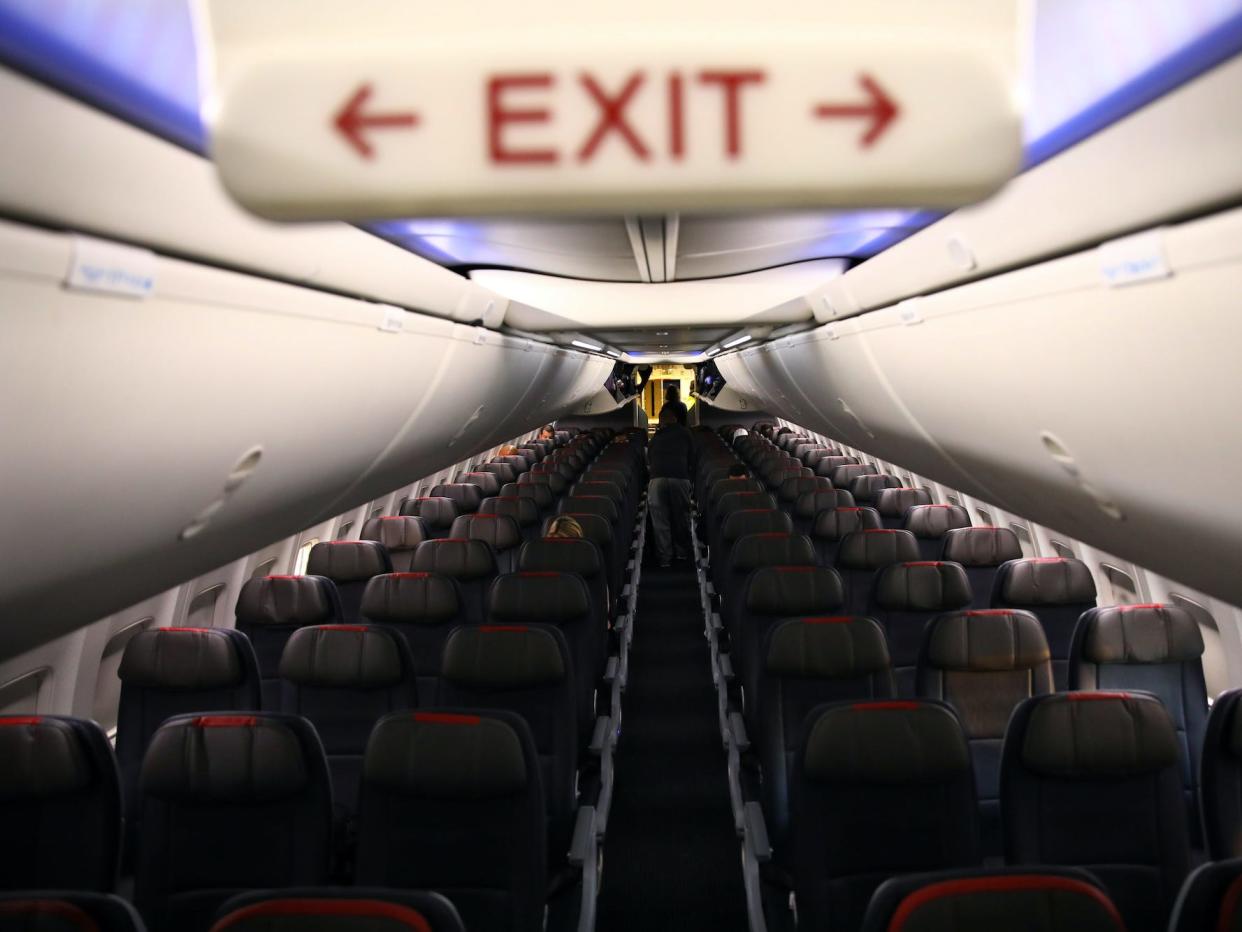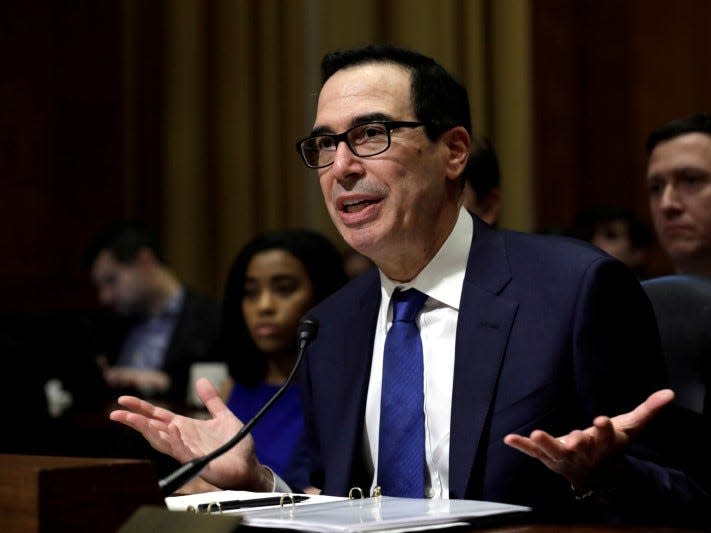Here's what you need to know about the $1.8 trillion coronavirus bailout everyone keeps talking about

REUTERS/Carlos Barria
The federal government is set to give a bailout to industries hardest hit by the coronavirus pandemic, from airlines to tourism.
A bailout is not strictly free money from the government, and could come in the form of loans or grants with limitations.
Here's what a bailout is, what could be included in the one to address the coronavirus fallout, and a look at past bailouts in the US.
What a bailout is — and isn't

Reuters
A government-funded bailout is more complex than just free money from the government. The bailout, while still being negotiated, is likely to give financial assistance to major corporations, small business, and individuals alike.
The bailout will likely include grants — money not to be paid back — to corporations, as well as checks to Americans to help boost the economy.
It is also set to include loans to be repaid by businesses after they bounce back from the economic fallout.
The grants are also likely to come with some strings attached, such as limits on executive compensation or stock buybacks for the companies benefiting from the bailout.
What could be included in the bailout

The U.S. Capitol in Washington, DC
Kevin Lamarque/Reuters
Democrats and Republicans in the Senate have struggled to agree exactly on what the bailout — which is set to cost the government more than $1.8 trillion — should include.
A $500 billion fund proposed in current legislation to help industries like airlines — which would receive around $58 billion if the bill passes — and tourism has come under fire from Democrats who say that the fund lacks critical oversight, according to a report by Politico.
The bill is also likely set to send Americans $1,200 checks to help boost the economy, though the exact amount is in flux as the bill is negotiated, and could change with income and dependents.
Republicans and Democrats are also at an impasse on things like unemployment assistance and funding for hospitals, according to the Politico report.
Which companies could get a boost from the bailout

AP
Airlines For America, an airline industry group that represents major carriers like United, American, and Delta, as well as UPS and FedEx, asked for a $54 billion bailout.
The request included $29 billion in grants (money not to be paid back) and $25 billion in loans and tax breaks.
The airline industry has received criticism for asking for financial help even though many of the industry's largest companies, such as American Airlines, Delta Air Lines and United Airlines, spent billions on stock buyback in recent years.
The restaurant industry is asking for help as many restaurants around the country have been forced to close and lay off employees. The National Restaurant Association asked the White House and Congress for a $145 billion recovery fund to pay employees and maintain financial obligations.
The group also asked for $45 billion in loans, and assistance in deferring mortgage, lease, and loan obligations.
Hotels are seeking help, too. The American Hotel & Lodging Association, which represents companies like Hilton and Marriott, requested $250 billion, according to a report by USA Today.
The association is seeking $150 billion for companies to pay employees and loans, and $100 billion for suppliers.
A look at recent bailouts

Getty Images/Spencer Platt
The coronavirus bailout is set to be much more costly than the Wall Street bailouts during the Great Recession.
The bailout to help recover from the coronavirus fallout is set to top $1 trillion, which is much more than the nearly $500 billion spent to help Wall Street.
The Wall Street bailouts, which included $311 billion for Fannie Mae and Freddie Mac, $90 billion for the Trouble Asset Relief Fund, and $6 billion for small business lending, cost the federal government around $498 billion, according to MIT's Sloan School of Management.
The bailouts that helped the country recover from the Great Recession were, and still are, criticized as handouts to giant banks, and echo criticisms that this bailout is more of the same. Sen. Elizabeth Warren called for "No more slush funds or no-strings-attached handouts" for major corporations in the coronavirus bailout.
Read the original article on Business Insider

